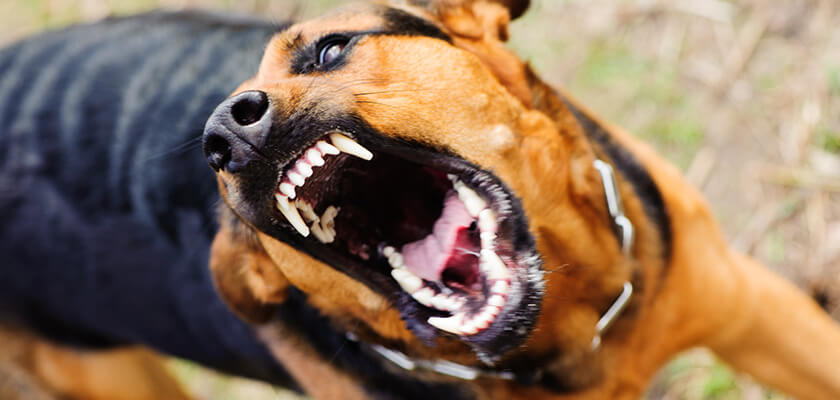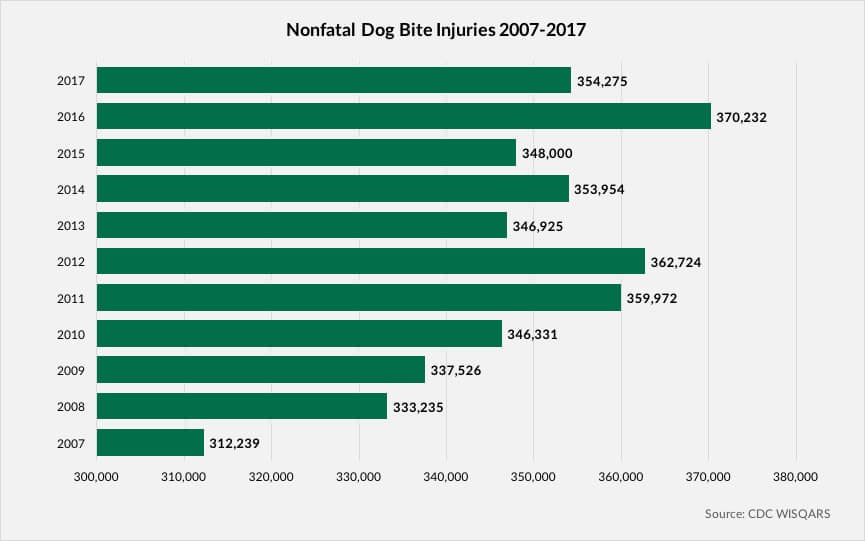According to the Centers for Disease Control and Prevention, more than 4.7 million Americans are bitten by dogs each year. An estimated 800,000 of these require medical treatment. Though no concrete statistics are available regarding emotional trauma, a number of victims admit the “once bitten, twice shy” scenario does apply.
If you were bitten or attacked by a dog in Denver, you can take action. Colorado law holds dog owners strictly accountable for injuries their pets inflict on others. An experienced Denver dog bite injury attorney from Fang Accident Lawyers, P.C. can help victims recover their damages.

After a severe personal injury, it is often difficult to manage both the circumstances of your injury – which can include hospitalization, mounting doctor’s bills, and prolonged pain and suffering – and a pending insurance claim or personal injury lawsuit. An experienced Denver dog bite attorney will gather information and evidence for your case. An attorney will also assist you in determining your next steps. Attorneys experienced in personal injury cases know the tactics commonly used by insurance companies. An experienced lawyer help you navigate them in pursuit of the ideal settlement.
If the insurance companies or the dog owner do not prove willing to cooperate or compensate you for your expenses related to a dog bite injury, your dog attack attorney can handle the necessary filings to ensure your case moves forward quickly. An attorney is well-versed in the ins and outs of the legal system. Your attorney will ensure you meet all deadlines and supply the necessary paperwork, while arguing your case to ensure a positive outcome. Meanwhile, you can recover from your injuries and rest assured your case is in excellent hands.
Any dog can bite, regardless of size, breed, or temperament. There are some breeds that appear time and again on official lists of frequent bite perpetrators. Certainly, it is wise to use caution around a dog of any breed. However, using particular caution around unfamiliar dogs of some of the most statistically dangerous breeds is wise.
In a thirteen-year study of dog bite fatalities between 2005 and 2017, dog bites killed at least 433 people. Of those bites, pit bulls accounted for 65.5% despite making up only 6% of the dog population in the United States. Rottweilers were a distant second, accounting for 10.4% of bites.
Together, pit bulls and Rottweilers caused nearly 77% of all fatal dog bite injuries. The remaining 23% of fatal dog bite injuries consisted of attacks by the remaining five breeds on the list – German Shepherd (4.6%), mixed-breed (3.9%), American bulldog (3.5%), mastiff (3.2%) and husky (3%). Other breeds accounted for fewer than nine total deaths nationwide over this period.
The state of Colorado generally leaves dog containment up to the individual municipality. Therefore, the degree to which dog owners must control their dogs varies depending on which Denver-area municipality you call home. However, generally speaking, all dogs must remain under control at all times.
In most areas of Denver, being in control means a person over the age of 18 has control of an animal via a leash, rope, or chain in public. At home, the animal remains the same, in a structure, or behind a fence on the owner’s personal property. Check with your municipality concerning its specific leash and containment laws.
Many states use either a negligence rule or a strict liability rule when approaching the matter of dog bite cases. Colorado uses a combination of the two types of laws, depending on the type of injury received and the circumstances under which the bite occurred. Colorado has instituted a dog bite statute as well as a negligence rule under premises liability to cover the majority of the dog bite cases occurring in Denver.
When a bite results in serious bodily injuries, strict liability applies to the owner if and only if the victim is on public property or lawfully on private property. Several types of serious injuries can occur.
Cases involving a non-serious dog bite or a bite producing injuries not on the serious bodily injuries list fall under premises liability law. Victims must show that the dog owner acted negligently in allowing their dog the opportunity to bite the victim. Usually, the victim must show that the owner failed to use reasonable care and attention to restrain the dog. Under premises liability, a dog owner acting negligently may assume liability for dog bite injuries unless the victim entered his or her property illegally.
In the past, Colorado dog owners without any prior knowledge or suspicions that a dog may act aggressively and cause serious injury to others could claim that since there was no indication the dog had violent tendencies, there was no basis for liability. In 2005, the Colorado dog bite statute repealed the first bite law’s prior knowledge requirement for dogs committing serious bites resulting in severe bodily injuries. Now, regardless of whether the dog acted aggressively in the past, owners assume strict liability if the dog causes serious injury or death to another person.
In cases where the bite does not cause serious bodily injury and the dog is not on the dangerous dog registry, premises liability takes precedence. In both cases, the dogs and owners may remain exempt from dog bite liability for several situations.
Colorado statutes hold that dogs causing serious bodily injury or death to a human or animal victim receive the dangerous dog designation. In addition, dogs displaying behavior that any reasonable person to believe the dog will inflict serious injury or death on an animal or human in the future, or dogs previously engaged in dog fighting may also receive the same designation. The Colorado Bureau of Animal Protection maintains a registry of dangerous dogs; owners of a dangerous dog that further causes serious bodily injury or death receive misdemeanor and felony charges, respectively.
According to a study from the Centers for Disease Control and Prevention (CDC), approximately 4.7 million dog bites occur in the United States every year. Of those, roughly 20 to 50 are fatal and thousands require hospitalization each year.

First, seek medical attention if needed. Then, you’ll need to obtain contact information for the dog’s owner and any witnesses to the attack. Once this information is collected, turn it over to your Denver dog bite attorney.
Next, file a police report regarding the incident so an officer can officially document your version of events as well as any witness statements. If you believe other witnesses can corroborate your version of events, be sure to obtain their contact information for the official police report. Record as much of the incident as possible, including any witness testimony, for your own records as well.
If you or a family member received injuries from a dog bite in Denver, your final step is obtaining a skilled attorney.
Consult with a Denver dog bite attorney to determine your next steps. An attorney will ensure you have the documentation needed to move forward with your claim. In the event litigation becomes necessary, our attorneys can ensure your case proceeds towards a positive resolution, recovering the damages you suffered. To learn more about how our Denver dog bite attorneys can help you, please contact us to schedule a free consultation.
“He took great care of my family and myself and was always there to answer questions and assure me that he would help settle every area. Thank you again and I highly recommend him even if you are located in a Colorado Springs!” – Amanda D.